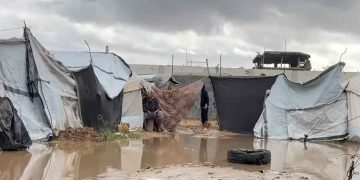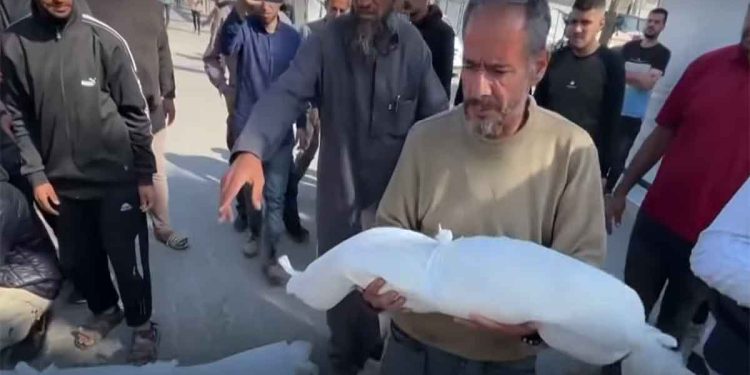A child in Khan Yunis, south of the Gaza Strip, died of starvation and dehydration caused by the tight blockade imposed on the Strip for nearly 100 days. This is a further indication of the worsening humanitarian catastrophe facing civilians, especially children, amid the ongoing systematic starvation policy practiced by the occupying forces.
According to medical sources, the child arrived at the Children’s and Maternity Hospital in Khan Yunis in critical condition, suffering from severe malnutrition that led to her death despite attempts to save her.
The sources confirmed that thousands of children in the Gaza Strip are facing the same fate, amid a complete lack of food, water, and medicine, and amid a near-total collapse of the health system.
This death comes amid a stifling blockade imposed by the occupying forces on the Gaza Strip. For more than three months, the crossings have been completely closed, preventing the entry of essential supplies and humanitarian aid, including food, fuel, and medicine. This has caused famine across large areas of the Strip and led to an unprecedented deterioration in living and health conditions.
Since the outbreak of the comprehensive aggression on the Gaza Strip on October 7, 2023, the occupation has used starvation as a weapon of war, particularly in the northern areas, as part of a campaign of genocide that includes systematic killing, destruction, and forced displacement. This campaign flagrantly violates the fundamental principles of international humanitarian law and constitutes a crime against humanity under the Rome Statute of the International Criminal Court.
The effects of the war are not limited to famine alone; to date, it has left more than 181,000 dead and wounded, the majority of whom are children and women. In addition, more than 11,000 are missing, and hundreds of thousands are displaced, living in inhumane conditions. The ongoing bombardment has also led to widespread destruction of infrastructure, including hospitals, medical centers, and water and electricity facilities.
Despite repeated calls from international organisations and legal bodies to halt the aggression and lift the blockade, the occupying forces continue their policies of collective punishment without accountability, amidst a disturbing international silence and unconditional political and military support from major powers. This raises serious questions about the fate of the international legal system and its ability to protect civilians and prevent mass crimes.
The incidents in Gaza is no longer merely an armed conflict; it represents a systematic act of genocide and ethnic cleansing, requiring an urgent stance from the international community, not just in solidarity, but also in immediate legal and political action, to end the aggression and hold accountable those responsible for these crimes, which do not expire with time.
























